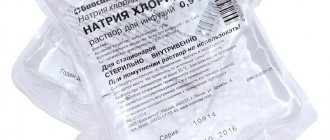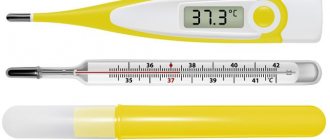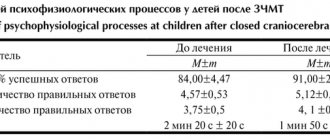Medicinal and herbal diuretics.
September 23, 2021
14947
4.5
1
Content
- How to choose a diuretic
- What are the types of diuretics?
- Classes of diuretics and indications for their use
- The best diuretics
- Hydrochlorothiazide
- Furosemide
- Indapamide
- Veroshpiron
- Torasemide
- Triampur compositum
- Diuver
- Dog-rose fruit
- Diuretic collection
- Juniper fruits
The doctor prescribes diuretics for various edema, hypertension, for the prevention of kidney stones, etc. It is no secret that some women even try to lose weight with the help of diuretics, but this is dangerous to health. The fact is that diuretics, together with liquid, remove potassium from the body - muscle contraction (including the heart muscle) is disrupted. That is why such drugs should be prescribed exclusively by a doctor, taking into account the underlying disease, possible contraindications and side effects.
Read also How to treat dehydration: 5 solutions for rehydration What drugs for dehydration are most often prescribed by doctors?
How to choose a diuretic
There are specific factors to consider if you choose a diuretic.
- Speed of action.
There are diuretics for emergency use: if you need to quickly lower high blood pressure (used in combination with other drugs), remove morning puffiness under the eyes. You should not take such medications often because they are addictive. Long-acting diuretics are prescribed to treat hypertension and edema associated with poor heart and liver function. - Pregnancy and breastfeeding.
Any diuretic medications are prohibited for pregnant and lactating women. And only in cases where a pregnant or lactating woman has a threat to her health and life, is it possible to use them. Usually this phrase sounds like “the benefit to the mother outweighs the risk to the fetus.” The exception is practically harmless herbal diuretics, but a woman should talk to her doctor before using them. - Tendency to allergies.
People with allergies may experience an undesirable reaction to both the active ingredient of the diuretic drug and its minor components. If you are allergic, consult your doctor before treatment.
In addition to diuretic medications, mild herbal remedies are often used. They are usually prescribed in the complex treatment of cystitis, urethritis, etc. Herbal diuretics not only remove excess water, but also relieve inflammation.
Drinking diuretics for weight loss is dangerous - the heart muscle suffers
Photos from open sources
Treatment of leg swelling
The treatment package depends on the cause of the unpleasant symptom. If it is not associated with serious diseases, but is caused by improper distribution of the load, it is enough to locally relieve the swelling. This can be done at home.
If it is caused by local reactions (bruise, allergy, infection), then it is necessary to provide the victim with the necessary assistance:
- treat the damaged area;
- apply ice;
- give medicine.
Sometimes this can be done at home, sometimes medical attention is required. After a few days, the swelling will disappear as the tissue heals.
Drug treatment under the supervision of a phlebologist is required for varicose veins and thrombophlebitis. If the disease is advanced, surgery may be required. After restoration of venous tone and normal blood circulation, external symptoms will disappear.
What are the types of diuretics?
All diuretic drugs are divided into several categories: according to their spectrum of use and mechanism of action.
- Loop diuretics.
These drugs have the strongest effect (they begin to act literally a few minutes after administration), but the effect ends just as quickly. Such drugs are well suited for the treatment of hypertension and heart failure. But loop diuretics have a significant disadvantage - along with water, they remove potassium from the body, which is fraught with the development of arrhythmia. - Thiazide diuretics.
Another effective diuretic drug. They not only get rid of excess fluid, but also dilate peripheral vessels. Thiazide diuretics also reduce the response of blood vessels to adrenaline, so they spasm less. Such diuretics are also prescribed for the treatment of urolithiasis. Among the “side effects” are the excretion of potassium and an increase in uric acid, which can then accumulate in the joints and cause gout. - Potassium-sparing diuretics.
Such diuretics do not remove potassium from the body, protecting the patient from various heart complications. But these drugs are not as potent as the previous ones. - Osmotic diuretics.
This group of drugs reduces blood plasma pressure - excess water is quickly removed from the tissues, swelling goes away. The pressure in the tissues and in the plasma becomes the same. Typically, osmotic diuretics are prescribed to relieve swelling of the brain, lungs, and high intraocular or intracranial pressure.
Causes of leg swelling
When there is too much fluid in the tissues, it means that there is a malfunction in the functioning of the body. Most often, swelling is caused by:
- protein metabolism disorder;
- damage to cell membranes, increasing their permeability;
- changes in pressure differences in tissues and vessels;
- impaired blood circulation.
There are many reasons for such failures. Some are temporary (allergic reaction, bruise, infection). Others indicate the development of pathologies of the lower extremities (varicose veins, thrombophlebitis). Still others indicate serious diseases of the internal organs (heart, kidneys, lymphatic system).
A person cannot independently determine why his foot is swollen: because of uncomfortable shoes or because of a blocked blood vessel. Therefore, you should not postpone a visit to the doctor for subsequent treatment.
Classes of diuretics and indications for their use
Main indications for the use of diuretics of various classes
| Diuretic class | Indications |
| Osmotic | Edema of the brain, lungs, acute attack of glaucoma, barbiturate poisoning |
| Carbonic anhydrase inhibitors | Edema due to pulmonary heart failure, glaucoma, epilepsy |
| Loop | Hypertensive crisis, cerebral edema, chronic renal failure, poisoning with water-soluble poisons |
| Thiazides and thiazide-like diuretics | Hypertension, cardiovascular failure, liver cirrhosis, nephrosis, pregnancy nephropathy, glaucoma |
| Potassium-sparing | Hypertension, heart failure, liver cirrhosis, hypokalemia during treatment with diuretics of other groups |
| Vegetable | Renal edema, whistitis, chronic renal failure |
| Xanthine derivatives | Hypertension, heart failure (in complex therapy) |
Hydrochlorothiazide
One of the most effective means for removing excess fluid and sodium salts from the body. Hydrochlorothiazide is prescribed for diseases of the kidneys, heart, lungs, to reduce blood pressure and reduce swelling. The drug does not form metabolites and is excreted unchanged by the kidneys. The maximum effect of the diuretic is achieved 4 hours after administration, and it lasts for 12 hours. Patients about it has a pronounced diuretic effect, any swelling quickly goes away, it is inexpensive. Among the disadvantages is a large list of “side effects” and the removal of important microelements from the body (including potassium and magnesium).
Hydrochlorothiazide
OZON, Russia; Pranapharm LLC, Russia; PJSC "Biokhimik", Russia; OJSC Borisov Plant of Medical Preparations (Borimed), Belarus; PJSC Valenta Pharm, Russia
A diuretic drug that is used for: Arterial hypertension, edema syndrome of various origins (chronic heart failure, nephrotic syndrome, renal failure, fluid retention in obesity), diabetes insipidus, glaucoma (subcompensated forms).
from 34
5.0 1 review
938
- Like
- Write a review
Doctor Myasnikov named an effective way to get rid of edema
Where does swelling come from? Why does the body retain fluid and how to effectively deal with its stagnation? Dr. Alexander Myasnikov revealed the whole truth about edematous syndrome in the regular column “Simple Truths” of his weekly program on the Russia 1 channel.
According to the specialist, when symptoms are pronounced, it is not the swelling itself that needs to be treated, but rather the root cause that needs to be looked for. In addition to the classic diseases of the kidneys, heart or liver, the process of fluid retention can be caused by taking certain medications.
“These include painkillers, hormonal medications, and those that we use to treat hypertension - all kinds of amlodipines, nifedipines, and so on - these are all medications that retain fluid,” the doctor emphasizes.
That is why, in the treatment of hypertension, diuretics are often prescribed, among other things.
Eating large amounts of salt can also lead to edema. According to Myasnikov, a person gets better not because he ate a lot of sausage, but because it is salty and retains fluid.
“If one leg is swollen, it can be very serious,” says Alexander Leonidovich. After a long flight, car ride, or working at a computer, the likelihood of developing a blood clot increases. To determine its likelihood, the doctor recommends measuring the volume of the lower leg on both legs. A difference of a centimeter is a serious reason to consult a doctor to diagnose a deep vein thrombus.
“Shooting disease” is considered especially dangerous, in which a blood clot can travel to the heart, from there to the lungs, leading to blockage of blood vessels and even pulmonary infarction. In this case, it is necessary to immediately begin anticoagulation with blood thinning drugs, and then still find out the cause. Otherwise, there is a risk of repeating a life-threatening situation.
Surprising fact: diuretics can themselves cause swelling. If a person spends a lot of time standing, fluid stagnates in the limbs and “sweats out into the subcutaneous tissue.” In this situation, the body gives the command to hormones to compensate for the loss and retain fluid. If you take a diuretic at the same time, the dose of hormones will be doubled for one purpose: to bring the fluid to the previous level.
“Remember: local edema cannot be treated with diuretics! Swelling under the eyes, swelling of one leg, moderate pastosity of the legs... We only treat general fluid retention with diuretics, and then only auxiliary. We need to know the reason!” – Dr. Myasnikov sums up.
Even more interesting news is on our Instagram and Telegram channel @smotrim_ru
Furosemide
This diuretic is one of the most popular and frequently prescribed, and is a strong diuretic. Furosemide removes excess water and sodium salts from the body well and quickly, and relieves swelling. The drug is indicated for hypertension, poor functioning of the heart, kidneys and liver. Diuretic tablets begin to act 20-30 minutes after administration. Furosemide is usually used in emergency cases. You cannot take the drug without medical supervision, because self-medication can lead to dehydration. Furosemide is inexpensive, acts quickly, but has many side effects, including the removal of potassium and magnesium.
Furosemide
Sopharma, Bulgaria; PJSC "Biosintez", Russia; Binnopharm, Russia; JSC Avexima, Russia; Update, Russia; JSC Pharmstandard-TomskKhimPharm, Russia; "Moskhimfarmpreparaty" named after. N. A. Semashko, Russia; Ozon LLC, Russia; OJSC Borisov Plant of Medical Preparations (Borimed), Belarus; JSC Dalkhimfarm, Russia
Edema syndrome of various origins (with chronic heart failure, cirrhosis of the liver (portal hypertension syndrome); edematous syndrome of renal origin (with nephrotic syndrome, treatment of the underlying disease is in the foreground), acute heart failure, especially with pulmonary edema (used in combination with other therapeutic agents) measures); cerebral edema; severe forms of arterial hypertension; hypertensive crisis; forced diuresis in case of poisoning with chemical compounds excreted unchanged by the kidneys.
from 17
2.0 1 review
1143
- Like
- Write a review
Indapamide
This is a moderate-acting drug that is usually prescribed for edema associated with heart failure. "Indapamide" is quickly absorbed into the gastrointestinal tract. Diuretic tablets reduce the load on the heart and peripheral vessels and stabilize blood pressure. The effect occurs an hour after taking the drug and lasts 12-18 hours. You can buy Indapamide with a prescription, it is inexpensive, but it is a generic (not the original drug). Be sure to check the possible side effects.
Indapamide
OZON, Russia
Arterial hypertension;
sodium and water retention in chronic heart failure. from 8
835
- Like
- Write a review
Veroshpiron
This is a potassium-sparing diuretic, which is prescribed for edema due to chronic heart failure and hormonal problems. And although Veroshpiron has a weak diuretic effect, the drug does not remove potassium and does not upset the acid-base balance in the body. The maximum effect of the diuretic occurs after 2-3 days and lasts a long time. You can buy Veroshpiron with a prescription; it is important to take into account the impressive list of contraindications.
Veroshpiron
Gedeon Richter, Hungary
The drug Veroshpiron is a potassium-sparing diuretic.
from 64
854
- Like
- Write a review
Read also Diet pills: effective drugs for weight loss List of the most effective weight loss pills.
Why do feet swell during pregnancy?
During pregnancy, the outflow of fluid is often disrupted. This is explained by large-scale changes occurring in the body:
- weight gain;
- changes in hormonal levels;
- compression of the inferior vena cava by the enlarging uterus;
- decreased mobility;
- diet correction.
In most cases, swelling is considered as a variant of the physiological norm. There is no need to resort to drug treatment; it is enough to keep the situation under control. However, the spread of edema throughout the body can result in serious pathologies, such as preeclampsia.
The expectant mother should monitor the dynamics of the increase in calf circumference, blood pressure and the ratio of fluid consumed and excreted. The kidneys experience increased stress during pregnancy, so at the first alarming symptoms it is better to be examined by a nephrologist.
Torasemide
This diuretic drug is one of the most effective today. "Torasemide" is prescribed for acute and chronic heart failure, as well as renal failure. The product can also be taken to prevent edema. The drug effectively reduces high blood pressure by quickly removing excess fluid and sodium salts. The effect occurs an hour after administration and lasts 12-18 hours. Patients note that the diuretic effect does not occur immediately, so in the first hour after taking the drug you do not have to limit your activity. "Torasemide" is inexpensive and works well to relieve swelling of the face. You can buy diuretic tablets with a prescription; there are some side effects.
Torasemide
Berezovsky Pharmaceutical Plant, Russia
Edema syndrome of various origins, incl.
for chronic heart failure, diseases of the liver, kidneys and lungs; - arterial hypertension. from 81
521
- Like
- Write a review
Swelling of the legs in bedridden patients
Biyarslanova Raisa Mavladinovna Therapist,
More about the doctor
Swelling of the lower extremities is one of the most common complications of long-term bed rest. Its degree and rate of development depend on several factors, among which the main ones are the patient’s age and his history of concomitant chronic diseases. Also, the occurrence of edema is promoted by an incorrectly formulated diet, excess fluid in the body, and a low level of physical activity. Swelling of the legs reduces the patient's standard of living, makes him feel discomfort, and causes pain.
Various classifications of edema as symptoms of diseases
Normally, swelling occurs after prolonged stress on the legs; after some time spent in uncomfortable shoes; when weather conditions change (sudden warming, changes in atmospheric pressure). Such edema signals some dysfunction of the cardiovascular system during exercise. Normally, such swelling disappears on its own after a few hours of rest.
In bedridden patients, swelling of the lower extremities without the presence of chronic diseases is caused by physical inactivity - low physical activity. If the patient has a history of diseases of the cardiovascular system (heart failure, coronary heart disease, arterial hypertension, venous insufficiency), the genitourinary system (renal failure, stones in the kidneys or urinary tract), the endocrine system (diabetes mellitus, thyroid disease ), then swelling is inevitable.
The above diseases provoke the appearance of edema because:
- sharply increase the level of pressure in small vessels;
- reduce the concentration of proteins in the blood plasma;
- change the level of osmotic/oncotic pressure in plasma;
- increase the permeability of the capillary wall.
All these changes lead to the accumulation and retention of fluid in the tissues , which makes it possible to diagnose edema. Most often, legs swell due to problems with the heart and blood vessels of the extremities.
Symptoms of leg swelling
The most obvious, visual symptom of edema is a change in the volume and appearance of the limb. There is thickening of individual areas, most often the legs, and the appearance of bluish or red spots on the skin. Due to compression of the nerve roots, constant nagging pain of low intensity may appear. The skin at the site of edema is cool to the touch; upon palpation, some looseness is felt, but the more pronounced the edema, the more pronounced the skin appears to be stretched.
Diagnosis includes visual examination, palpation with pressure. In this case, a small depression is formed on the skin, which normally disappears after 1 minute. If hidden, generalized edema is suspected, a specialist may prescribe an ultrasound, blood and urine tests.
Treatment and prevention of edema of the lower extremities
If swelling of the legs in a bedridden patient is associated with any chronic disease, then the main treatment is aimed at normalizing the functioning of the suffering organ system (for example, endocrine). If the cause of edema is only physical inactivity and a prolonged lying position of the patient, then he is prescribed a massage course, a special diet, exercise therapy and, if necessary, diuretics.
To prevent edema in bedridden patients, it is enough to periodically change the patient’s position; place pillows or bolsters under your feet so that they are located at approximately an angle of 30 degrees. relative to the body; monitor the cleanliness of his bed linen (the absence of folds on it is important), and regularly do passive exercises. Gymnastics may include exercises such as bending the legs at the knees, circular movements of the ankle, and raising the legs. It will be useful to limit your salt and liquid intake.
Triampur compositum
This diuretic does not have a very pronounced effect and does not remove potassium from the body, only water, salts and toxins. That is why Triampur compositum is considered the safest diuretic drug, which is prescribed for edema due to chronic heart failure and liver problems. Triampur begins to act 15 minutes after administration, and the effect lasts about 12 hours. Doctors say that this diuretic is safe for relieving facial swelling, is quickly absorbed into the gastrointestinal tract, and has a gentle effect.
Triampur compositum
AVD.pharma, Croatia
-arterial hypertension;
—edematous syndrome of various origins (with chronic heart failure, nephrotic syndrome, liver cirrhosis). from 256
375
- Like
- Write a review
Relieving swelling during pregnancy
In the body of a woman carrying a fetus, the concentration of the hormone progesterone increases. It is one of the causes of edema during pregnancy. In no case should it be reduced, because it is this that ensures the attachment of the embryo.
There is no need to fight physiological swelling. The main thing is to prevent it from getting worse. To alleviate the symptoms, you can carry out the mentioned water procedures and adhere to a healthy lifestyle (moderate activity, water consumption within the daily norm, adjusted for restrictions imposed by pregnancy, rest on your side).
The pathological nature of edema can only be determined by a doctor based on test results (in particular, protein in the urine). Having discovered the cause, he will prescribe treatment. It is prohibited to take any medications on your own.
Diuver
Modern diuretic tablets from the group of loop diuretics. The active ingredient of the drug, turasemide, copes well with edema of various natures. “Diuver” has the mildest, prolonged action; the effect after administration occurs within 3-4 hours. Although it is not a potassium-sparing diuretic, it removes much less potassium than other diuretics. Diuver is prescribed for diseases of the kidneys, liver, lungs and heart failure. You can buy Diuver with a prescription (by the way, it is not cheap), be sure to familiarize yourself with the contraindications and side effects.
Diuver
JSC "Biolek", Ukraine
- edematous syndrome of various origins, incl.
for chronic heart failure, diseases of the liver, kidneys and lungs; - arterial hypertension. from 236
658
- Like
- Write a review
Natural Diuretics
Photos from open sources
Dog-rose fruit
In addition to medicinal diuretics, herbal drugs have a mild diuretic effect. Firstly, it is rosehip. In addition to being a diuretic, it is famous for its general strengthening effect, helping the body resist various infections (also for urinary tract diseases). Rosehip improves the functioning of the digestive and cardiovascular systems. The value of rosehip is that it contains a lot of useful vitamins. Rose hips relieve swelling, reduce cholesterol levels, normalize blood clotting, and help cells recover faster.
Rosehip fruits
OJSC Krasnogorskleksredstva, Russia
For the prevention of hypovitaminosis C and R. In the complex therapy of acute and chronic infectious diseases, asthenic conditions, during the period of recovery after serious illnesses, surgical operations
from 28
396
- Like
- Write a review
When do they occur most often?
Due to a number of circumstances, adds cardiologist Andrei Grachev, such as the flow of fluid to the upper half of the body in a lying position, changes in the biorhythms of hormone production (more often their active synthesis occurs at night or in the early morning hours), edema syndrome most often manifests itself in the early morning hours .
Morning
If we talk about physiological reasons, morning swelling is usually associated with constant lack of sleep, fasting or strict diets (limiting protein and fats). Sometimes swelling in the morning is caused by the wrong selection of skincare products (face cream, toner or cleanser). Also, morning swelling of the face can be caused by crying or stress in the evening or at night.
Possible swelling of the face in the morning due to an incorrectly selected pillow (it is too high, it provokes a narrowing of the blood vessels in the neck). Another physiological factor is an excess of fried, salty foods or liquids taken in the evening, before bed. In women, facial swelling in the morning can be caused by hormonal fluctuations, PMS or pregnancy. Some women report morning swelling during menopause.
Pathological causes of morning edema are mainly kidney damage. Such swelling is usually soft, mobile, appears on the face after sleep, and the skin acquires a waxy or yellowish tint. The most common causes of facial swelling are:
- glomerulonephritis - the acute form of the disease leads to edema, which lasts up to 2-3 weeks, if the process enters the chronic phase, edema is typical for periods of exacerbation of inflammation;
- Kidney amyloidosis - edema is typical of the second stage (proteinuria), when protein loss occurs and kidney function gradually deteriorates;
- membranous nephropathies - occur after taking certain medications, tumor therapy, acute infectious pathologies. Edema occurs in waves, with sharp or barely noticeable symptoms;
- chronic kidney disease (previously called renal failure) - swelling occurs gradually as renal damage progresses;
- kidney damage in severe systemic pathologies - edema is typical for nephropathy due to diabetes or systemic lupus erythematosus.
Evening
Sometimes facial swelling becomes noticeable in the evening, especially after an active day. Often this is one of the manifestations of pathologies of the cardiovascular system. Often, swelling of the face is accompanied by severe swelling in the area of the extremities - hands and feet, legs. These swellings are denser, the skin has a lower temperature than on other parts of the body, and such swelling goes away slowly. Often occur against the background of the following pathologies:
- amyloidosis of the heart and blood vessels;
- cardiomyopathy;
- sclerotic heart disease (cardiosclerosis);
- certain types of arrhythmia;
- constrictive pericarditis;
- some heart defects;
- arterial hypertension;
- cardiac lesions due to rheumatism.
Day
Sometimes facial swelling is most pronounced during the day or its appearance is not clearly related to the time of day. Among the main pathologies that lead to such edema are endocrine disorders - especially a lack of thyroid hormones (hypothyroidism). Facial swelling is especially pronounced with congenital hypothyroidism, in pregnant women or with autoimmune thyroiditis, cytokine-induced thyroiditis.
Rapidly increasing swelling of the face during the day can be a sign of allergies - to food, insect bites, cosmetics, medications and even cold. Sometimes facial swelling occurs during an attack of bronchial asthma due to difficulty breathing and fluid retention in the veins.
Facial swelling is possible in people who smoke and drink alcohol. This is due to the increased work of the lymphatic system to remove toxins from tissues.
Severe swelling of the face during the day is possible with respiratory infections and their complications - sinusitis, tonsillitis, frontal sinusitis. Swelling of the face is possible with a deficiency or excess of vitamins (especially fat-soluble ones).
Diuretic collection
Herbal infusions are very popular for the treatment of many diseases, including as a diuretic for edema. Diuretic collection in complex treatment helps cure urinary tract infections. Medicinal herbs in the diuretic collection act very gently, relieve spasms and inflammation. A diuretic preparation is often prescribed for cystitis; it is suitable for preventing relapses of this disease and is available in almost every pharmacy. Disadvantages include an unpleasant taste and green coloration of urine.
Diuretic collection
ST-Medipharm, Russia
Combined product of plant origin.
It has diuretic, anti-inflammatory, antiseptic, antispasmodic effects. from 76
5.0 1 review
392
- Like
- Write a review
Possible causes of leg swelling
- Vein diseases (varicose veins, thrombophlebitis, acute deep vein thrombosis).
- Lymphovenous insufficiency.
- Lymphostasis, lymphedema (elephantiasis).
- Disorders of venous outflow associated with diseases of the abdominal and pelvic organs.
- Neoplasms, including malignant ones.
- Diseases of the liver, kidneys.
- Pathologies in the cardiovascular system.
- Pathologies in the respiratory system.
- Joint diseases (arthrosis, polyarthritis, rheumatic diseases).
- Flat feet.
- Hormonal imbalance, women are especially susceptible to this. The cause of edema is regular use of hormonal drugs.
- Pregnancy.
- sedentary lifestyle.
- Allergic reactions.
- Diarrhea of any nature.
- abuse of laxatives.
It is possible that the legs swell due to several reasons.
Before you begin treating swelling of the lower extremities, it is important to identify the root cause.
Juniper fruits
Juniper helps with urinary tract infections by reducing inflammation and destroying germs. And thanks to the diuretic effect, pathogenic microflora is quickly eliminated from the body. Juniper fruits are also used as an appetite stimulant and to improve the functioning of the gastrointestinal tract. In addition, this herbal preparation stabilizes blood pressure and has a mild laxative effect. Contraindications include pregnancy, breastfeeding and childhood.
Juniper fruits
OJSC Krasnogorskleksredstva, Russia
In the complex treatment of edematous syndrome (with heart failure, insufficiency of kidney and/or liver function), cystitis
from 39
229
- Like
- Write a review








